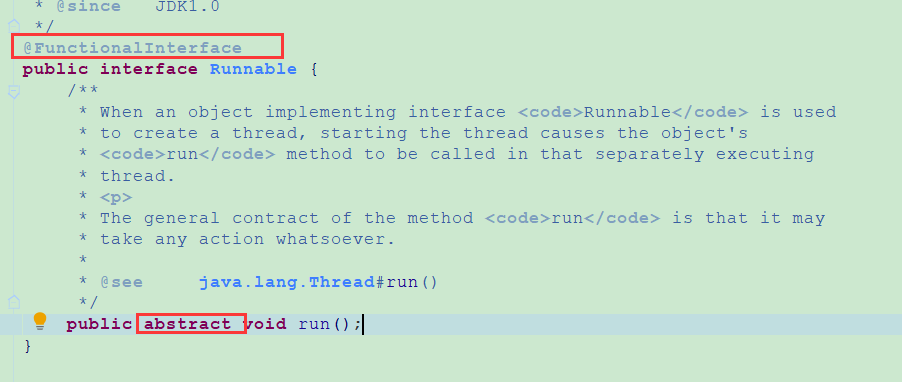函数式接口
定义
如果一个接口只有一个抽象方法,那么该接口就是一个函数式接口
如果在某个接口上声明了FunctionalInterface注解,那么编译器就会按照函数式接口的定义来要求该接口
如果某个接口只有一个抽象方法,但我们并没有给该接口声明FunctionalInterface注解,那么编译器依旧会将该接口看作是函数式接口
1 | /* |
Runnable接口

函数式接口的创建
lambda表达式、方法引用、构造函数引用
Note that instances of functional interfaces can be created with
lambda expressions, method references, or constructor references.
Stream流
1 |
|
串行流、并行流
Collection接口

1 | /** |
Function接口
1 | /* |

